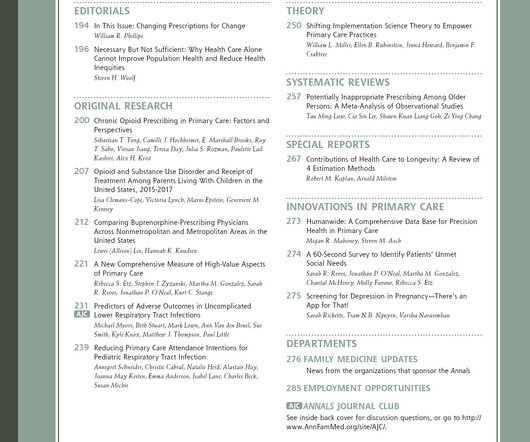An Open Letter to Robert F. Kennedy, Jr. On Why Integrated Care Should Be a Cornerstone of the HHS Agenda
Integrated Care News by CFHA
APRIL 16, 2025
At the Collaborative Family Healthcare Association (CFHA), we see your agenda aligning with ours in powerful ways. It moves away from fragmented systems, provides alternatives to medication-only treatment paths, and leads patients to practical pathways for healing—whether for anxiety, diabetes management, depression, or addiction.


















Let's personalize your content